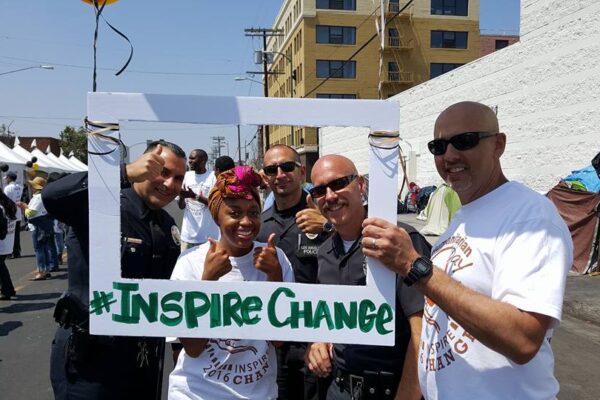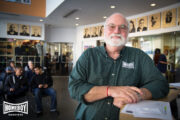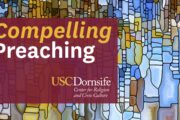This article originally appeared in The Ismaili USA.
Every four years the citizenry of the United States engages the political process through national elections. The election cycle seems to lengthen with each presidential contest. This year in particular, the rhetoric and political pandering is creating greater political fatigue and straining our already divided society.
Yet, outside the political hibernation from which we awaken every four years, private citizens can engage society to pursue our own notions of the common good in a variety of ways. Civic engagement work ranges from voting to advocacy, volunteerism and charity. All of these actions form a core pillar of a flourishing democracy. As Alexis de Tocqueville noted after his encounter with the young country of the United States of America, “the health of a democratic society may be measured by the quality of functions performed by private citizens.”
When we do not actively participate in our country’s public life, including with those whom we disagree, the quality of solutions to our common problems suffers. Cass Sunstein, in the book Going to Extremes: How Like Minds Unite and Divide, noted that the more similar a group is, the less exposure they have to different ideas, and the more they gravitate towards polarization and extreme positions. They develop solutions to problems that only apply to and are accepted by part of the population, and they tend to further polarize already siloed groups.
Civic engagement, however, is more than just our responsibility within a democracy to improve our shared society or to mitigate the harm done by increased polarization; it also allows us to live a quality life of meaning and purpose. Nearly 2,500 years ago, Aristotle observed, “What is the essence of life? To serve others and to do good.” Carrie Chapman Catt, the American suffragette, believed that “service to a just cause rewards the worker with more real happiness and satisfaction than any other venture of life.”
Simply put, living a life of dignity for ourselves is connected to creating dignified conditions for others. Both are created through working to better the world; work done through civic engagement. Here are four ways to get involved in the common good beyond casting a ballot every four years:
1. Vote locally: While our attention is often focused on the national and international, life is lived locally. Local and state political elections have a greater impact on the vast majority of our lives than do national elections, yet they garner very little engagement. For example, in Los Angeles, the March 2015 municipal election yielded an 8.6 percent voter turn out. To stay abreast of the coming elections, check your county clerk or registrar’s website.
2. Join the government (without running for election): Work with government commissions, boards, and committees allow you to provide your expertise, experience and knowledge on issues like zoning, planning, disaster response, diversity and voting districts. Governors and mayors have offices that vet individuals for these crucial appointments.
3. Get involved: Civil society organizations—which are neither private corporations nor government entities—play a critical role in social change by promoting the common good and bringing individuals into collective purpose. While the range of these organizations is broad, they generally fall under two categories: service providers and advocates for policy change. Advocates often bridge social service providers and government entities. While service providers can and are often a part of advocacy groups, they are engaged primarily with supporting vulnerable people with programs such as food banks, housing, job programs, and mental health and wellness. Social service providers can work in partnership with government agencies, and can also serve to fill gaps left by government policies and programs that are unable to meet community needs.
Civil society organizations run on the power of individuals behind them. While many have paid staff positions and professional executive directors, those organizations rely on the pull of their message to mobilize people to support their minimal staffs and thin budgets. You can get involved as a:
- Volunteer: Volunteers provide the legwork and boots on the ground to do everything from the most basic of tasks, such as stuffing envelopes and making phone call, to consulting on strategy and providing professional services.
- Lay leader: Board and committee leaders are charged with governing civil society organizations and providing a vision for organizational direction.
- Donor: Whether large or small, donations ensure that civil society groups have the resources they need to create their vision and allow for community members to feel invested in the work they seek to support.
4. Go online: Technology that is so critical to our daily lives and our businesses also provides important social infrastructure to help us promote a common good. Many critique “social media activism,” saying that the real work is not done online, but in walking the hallways of Capitol buildings and writing letters to elected officials. This view, however, overlooks the rapid and sweeping reach of social media to reach elected officials and other influencers. Online campaigns can raise awareness and spur petitions. You can tweet at your elected representative. They very often pay attention and tweet back. Changing your Facebook profile picture and filter based on the news of the day can contribute to raising awareness of specific events. Rather than dismissing such actions as meaningless, think of them as a first step in a much longer road to social change.
That road begins today with the actions we decide to take as a daily habituation of our most deeply held values. The journalist, Ellen Goodman, reminds us that these actions do not have to be revolutionary, but can be simple: “I have never been especially impressed by the heroics of people convinced that they are about to change the world. I am more awed by…those who…struggle to make one small difference after another.”
And the time is now, and everyday. Not just every four years. Anne Frank reminds us of the hope and optimism in the face of the most terrible evil that it is “wonderful that no one need wait a single moment to improve the world.”
Click here to read the full article in PDF format.
Photo Courtesy of Humanitarian Day via Facebook.
Brie Loskota is the former executive director (2016-2021) of the USC Center for Religion and Civil Culture.





